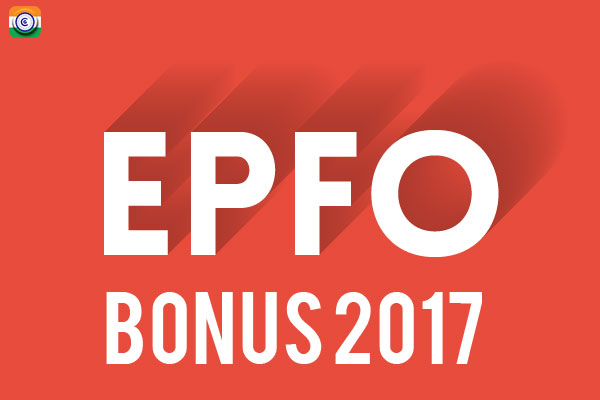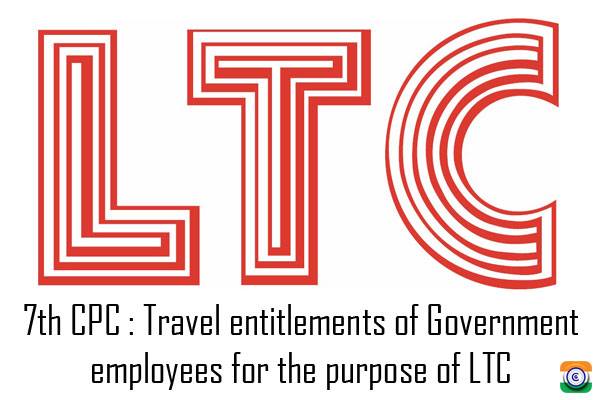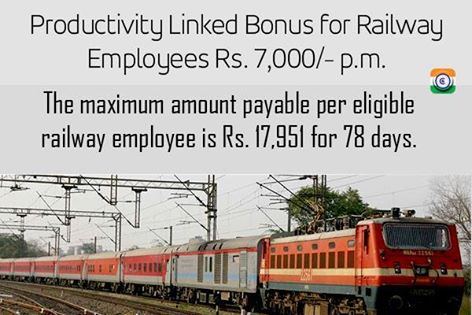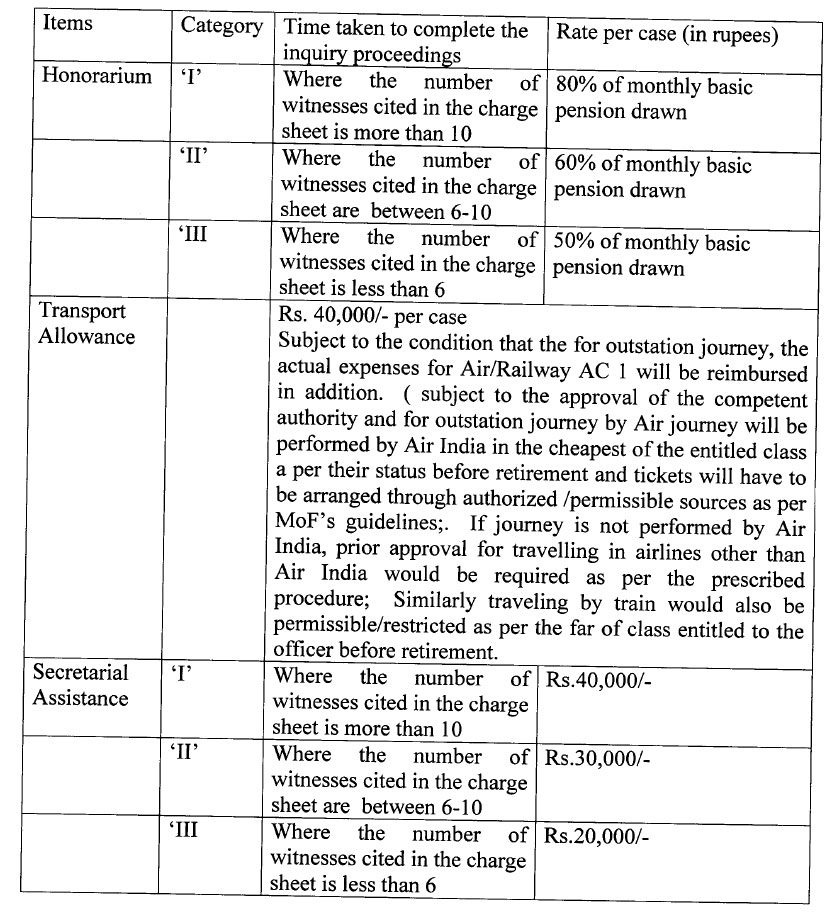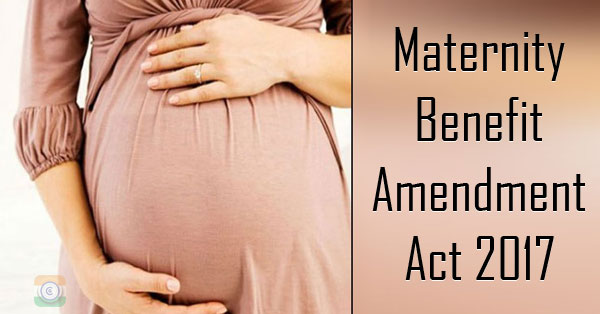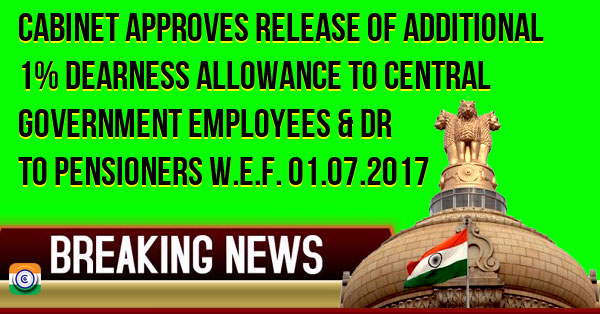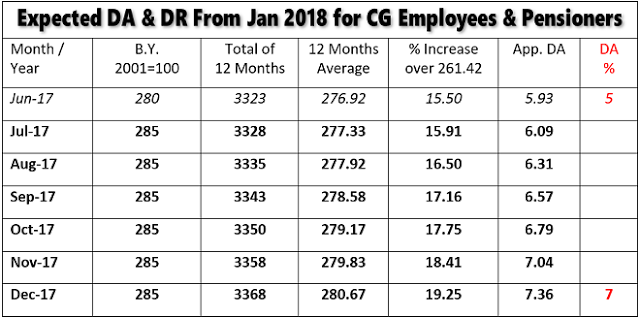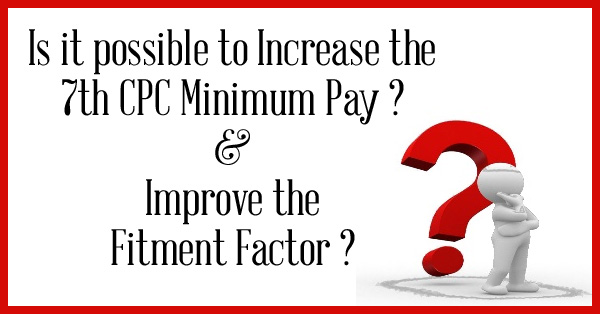
QUANTIFICATION OF NEED-BASED MINIMUM WAGE AND NEED FOR REVISION OF MINIMUM WAGE OF CENTRAL GOVERNMENT EMPLOYEES
The
concept of the Need-Based Minimum Wage has evolved in India after
Independence and owes its origin to the Directive Principles of the
Indian Constitution and the welfare policy of the Government. Its
acceptance in principle connotes a public effort at an institutional
determination of wage rates particularly in the industrial sector of the
economy. Unfortunately the computation of the need based minimum wage
has become a controversial subject in the country. While the concept of
what the need based minimum wage should cover is fairly clear and
generally accepted by both the employer and employee, its actual
assessment into monetary terms has raised endless disputes not alone by
the employer.
NEED-BASED MINIMUM WAGE FORMULA:
Minimum
wages for the average family will have to be based on requirements of
food, clothing, housing and so on. Additional components of expenditure
to cover for children's education, medical treatment, recreation,
festivals and ceremonies.
In a vast country such as ours, there
are bound to be regional variations in these requirements owing to
climatic conditions, food habits, etc. At the same time in order to
ensure a degree of uniformity the Conference have adopted a certain
norms. The food component carries the largest- proportion of the total
cost of living in a working class family. The component’s significance
is not only economic but human also. On food depends the health and
efficiency of the worker, which is vital to the industrial production.
After a protracted discussion the Conference adopted Dr. Aykroyd's
second dietary prescription of the adequate diet level, the other one
being the optimum diet level. An optimum diet according to him, is one
which ensures the functioning of the various life processes at their
very best; whereas an adequate diet maintains these processes but not at
their peak levels. The optimum diet would include more of vitamins and
less of proteins in its caloric content, while the adequate diet would
include more of proteins and less of vitamins.
The Committee on
Fair Wages laid down that the standard working class family should be
reckoned as one consisting of three consumption units, supported by a
single male earner and including his wife and two children below the of
age 14 The 15th Session of Indian Labour Conference approved that the
wage should cover four categories of needs considered essential for the
worker's well being, viz. food, clothing, housing and miscellaneous. In
calculating the minimum wage, the norms for the food category should be
based on Dr. W.B. Aykroyd's formula for an adequate and balanced diet.
It thus came about that a wage linked to the needs was suggested as a
desirable minimum.
Subsequently, when attempting to implement the
recommendations of the conference, almost all the wage fixing
authorities including the committees appointed under the Minimum Wages
Act, 1948 have invariably faced difficulty in determining: (i) the
calorific norm which should form the basis of the diet content (ii) the
exact composition of the diet (iii) the qualities of the various items
of diet and (iv) availabilities of food commodities consumed by the
worker and his pattern of consumption. In this regard the first assault
was launched by the II Central Pay Commission (1959), pertaining to the
calorific norm as laid down by the 15th Indian Labour Conference. The
Indian Labour Conference worked out the three-unit formula, the minimum
wage is worked out taking into consideration the calorific value
requirements of 2,700 each, certain length of cloth requirement, housing
rental value, education and medical expenses etc.
CONCEPT OF LIVING WAGES:
Concept
of Living Wages It represents a standard of living which provides not
merely for bare physical subsistence but for maintenance of health and
decency, a measure of frugal comfort, including education of children,
requirement of essential social needs and a measure of insurance against
eh more important misfortunes including old age. This is the ideal
wages and envisaged in Article 43 of Directive Principles in Part IV of
the Constitution. I. L. O. Conventions also provide for living wages.
Living
wages is the ideal wages and on the line as stipulated in Article 43 of
our Constitution. Wage differentials are necessary part of wage
structure if skill formation is to be motivated and productivity is to
be achieved but at the same time it should be reasonable.
Hence it
is relevant to quote the following observation made by the Kerala High
Court in Association of Planters of Kerala v State of Kerala in this
regard: A failure to fix or revise minimum wages was not only a
statutory violation but is a breach of fundamental right enshrined in
Art. 23 of the Constitution. A duty is cast upon the State by provisions
of the Act and Article 23 to fix and revise the minimum rates of wages.
7th CPC REPORT PARA NO 4 HAS ALSO DEALT THE ISSUE OF A NEED-BASED MINIMUM WAGE TAKING INTO THE CONCEPT OF THE FOLLOWING.
a)
Normative family is taken to consist of a spouse and two children below
the age of 14. With the husband assigned 1 unit, wife, 0.8 unit and two
children, 0.6 units each, the minimum wage needs to address 3
consumption units;
b) The food requirement per consumption unit is
shown in the Annexure to this chapter. The specifications were derived
from the recommendations of Dr. Wallace Aykroyd, the noted
nutritionist, which stated that an average Indian adult engaged in
moderate activity should, on a daily basis, consume 2,700 calories
comprising 65 grams of protein and around 45-60 grams of fat. Dr Aykroyd
had further pointed out that animal proteins, such as milk, eggs, fish,
liver and meat, are biologically more efficient than vegetable proteins
and suggested that they should form at least one-fifth of the total
protein intake
c) The clothing requirements should be based on per
capita consumption of 18 yards per annum, which gives 72 yards per
annum (5.5 meters per month) for the average worker’s family. The 15th
ILC also specified the associated consumption of detergents
d) The
prescribed provision of Report of the Seventh CPC 63Index 25 percent to
cover education, recreation, ceremonies, festivals and medical expenses
has been reduced to 15 percent.
THE THREE-UNIT BASED FORMULA ADOPTED BY THE PAY COMMISSIONS NEEDS A CHANGE TO SIX UNITS DUE TO FOLLOWING FACTORS :
The
three-unit based formula to fix minimum wages presently counts only
four members of a family ie husband, wife and two children. It has no
provision to count dependent parents, if any, or even if there are more
than two children.
The three-unit formula gives the husband a full unit, wife 0.8 unit, and 0.6 units for each of the two children.
Now
the trade unions and the employees associations are of the opinion that
the three-unit system are not sufficient to decide minimum wages
because the children continue to stay with the family for longer
periods. The two children and wife should be accorded one single unit
instead of 0.6 units,” also, marriageable age of a child has also
increased and they should also be given full units, the gender equality
should also be observed instead of 0.8 units it should be full unit for
the spouse.
Hence should be revised to the four unit formula gives
the husband a full unit, wife full unit, and full units for each of the
two children.
After the 2010 Supreme Court ruling that dependent
parents are to be taken care of by children, two more units should be
added and the formula be based on six-unit formulae than three.
"The
CrPC section 125 and Maintenance of Parents and Senior Citizens Act
make it mandatory for an earning member to maintain his parents, failing
which he/she may have to face penal consequences. Today, the average
life span of a person has increased to 68.3 years compared to that of 41
years in 1957. Hence two additional units have to be added,"
So there is a need to hike number of units from three to six to calculate minimum wages.
OTHER FACTORS AFFECTING OUR WAGES ARE AS FOLLOWS:
1)
The 7th CPC has taken into consideration the 15% to cover education,
recreation, ceremonies, festivals and medical expenses against 25%
prescribed by the Supreme Court. Additional components of expenditure to
cover for children’s education, medical treatment, recreation,
festivals and ceremonies. This followed from the Supreme Court’s ruling
in the Raptakos Brett Vs Workmencase of 1991 for determination of
minimum wage of an industrial worker. The Supreme Court had prescribed
this amount at 25 percent of the total minimum wage calculated from the
first five components.
2) Secondly the prices of essential
commodities for calculation of the minimum wage is always a debate , the
price essential commodities by the using Consumer Price Index for
Industrial Workers maintained by Labour Bureau, Shimla and the retail
prices are showing different rates , the retail prices of essential
commodities are at higher end including that of state Government run
co-operative society’s compared to the retail prices maintained by
Labour Bureau, Shimla by more than 15%, that is the prices maintained by
Labour Bureau, Shimla are lower by more than 15% compared to market
prices , the CG employees are deprived of proper minimum wage by an
extent of 25% . If proper retail prices are taken into account the
minimum wage shall be more than Rs 26,000/- as on 1st Jan 2016.
THE PAYMENT OF WAGES ACT, 1936:
The
revision of payment of wages act, 1936 , the Government has raised the
monetary limit of wages to Rs. 24000/- per month for the applicability
of the Act by issuing the notification .This calculation of Rs 24,000/
is based on Dr. W.B. Aykroyd’s formula. This is done on the basis of
figures of the Consumer Expenditure Survey published by the National
Sample Survey Organization.
The payment of wages act, 1936
monetary limit of wages to Rs. 24000/- per month is for unskilled worker
, if we add Rs 25% for skilled worker , it work out at Rs 30000/- for
skilled worker which includes wages and allowances, at present the
Central Government employees at the initial stage are paid Rs 23,000/-
(Rs 18,000/ as minimum wage and Rs 5,000/ as allowances ), still there
is gap of Rs 7,000/ , if the minimum wage of Central Government
employees is re fixed at Rs 22,000/ then this gap shall be reduced.
The breakup of the Central Government employee's salary is as follows.
Non Metro City
Minimum wage Rs 18,000/-
HRA Rs 1800/-
Transport allowances Rs 900/-
Children education allowances Rs 2250/-
Total Salary : Rs 22950/-
The
Central Government employees are deprived of the actual minimum wage of
Rs 26,000/-. Hence there is a need of revision of minimum wage from Rs
18,000/ as Central Government is a model employer.
Via :
COC Karnataka



